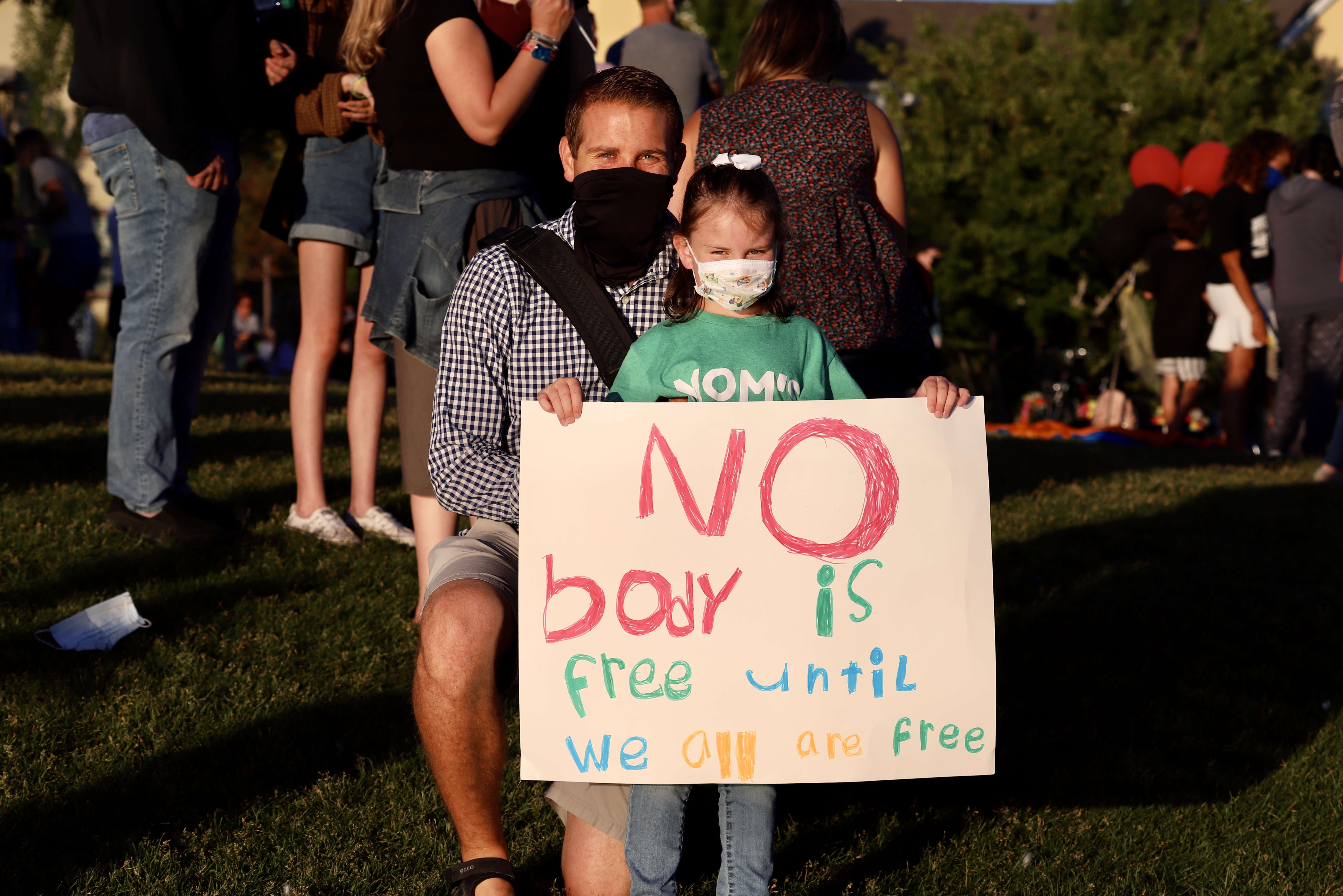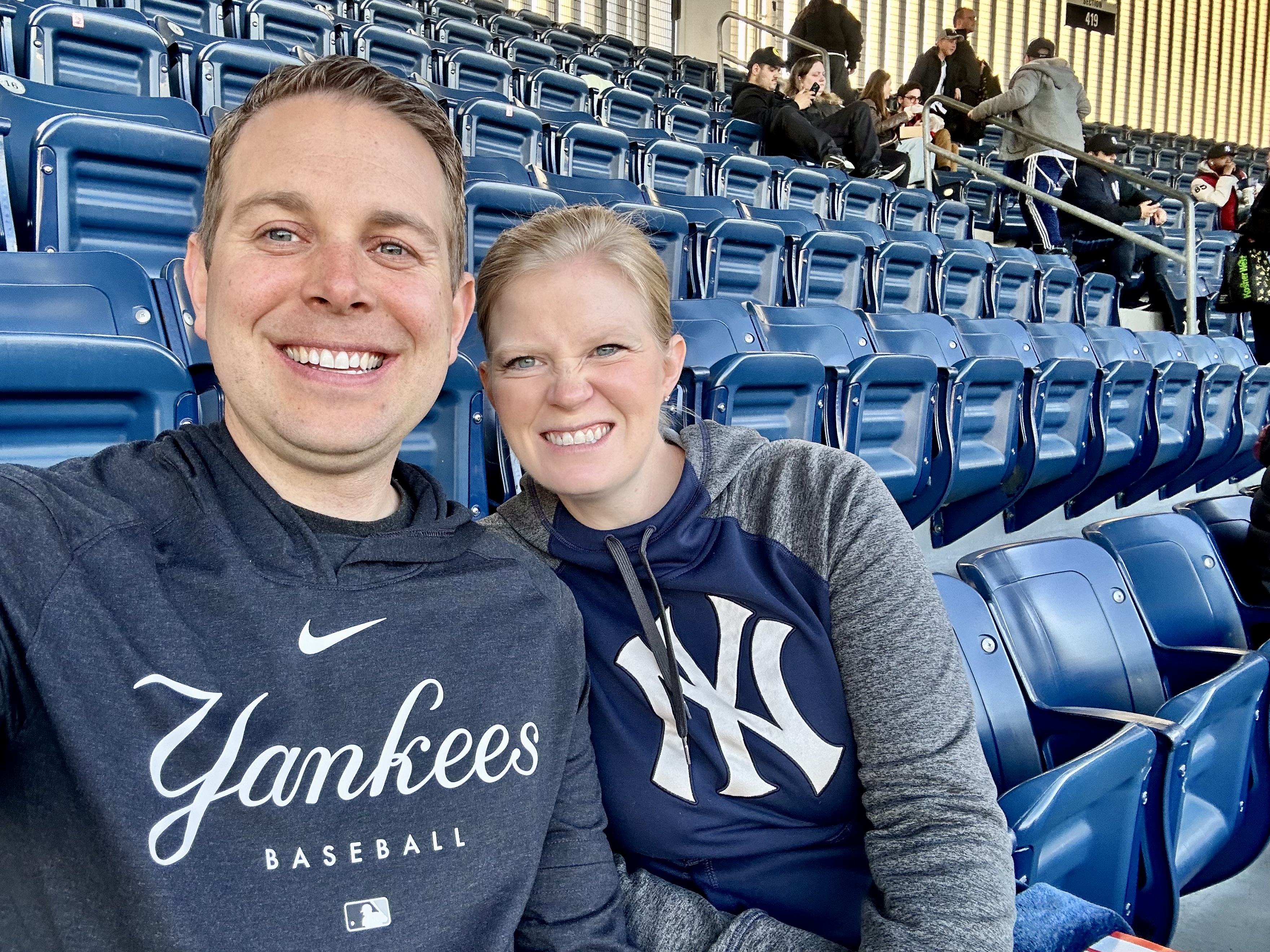Black Lives Matter
The last several months have been an exceedingly difficult time around the world. Covid-19 has significantly disrupted the lives people worldwide; many people have died from the virus, millions have lost their livelihood, and many live in fear of the virus every day. During this pandemic, the world was shocked again by the senseless killing of another black person, George Floyd, at the hands of an individual charged with protecting others. Watching the video of George Floyd suffocating under a police officer’s leg, shakes me to the core. It is devastating there are a multitude of other stories, all too similar to this heartbreaking tragedy.
We have seen cities erupt in peaceful and sometimes violent protests that reflect the deep anger and frustration people are feeling. As a country, we are becoming an increasingly divided and polarized society. It is difficult, but we need to ask provocative questions and critically examine, rather than defend the status quo.
I have spent time watching the news and working to educate myself. I don’t know the answers to the problems facing our society. I want to know more. To gain new perspectives, I read books:
Just Mercy: A Story of Justice and Redemption by Bryan Stevenson
Dreams from My Father: A Story of Race and Inheritance by Barack Obama
How to Be An Antiracist by Ibram X. Kendi
White Fragility: Why It's So Hard for White People to Talk About Racism by Robin DiAngelo
Between the World and Me by Ta-Nehisi Coates
So You Want to Talk About Race by Ijeoma Oluo
Stamped from the Beginning: The Definitive History of Racist Ideas in America by Ibram X. Kendi
The Nickel Boys by Ted Chiang
We Were Eight Years in Power: An American Tragedy by Ta-Nehisi Coates
The Broken Ladder: How Inequality Affects the Way We Think, Live, and Die by Keith B Payne
The Color of Law: A Forgotten History of How Our Government Segregated America by Richard Rothstein
Caste: The Origins of Our Discontents by Isabel Wilkerson
And watched:
13th
Just Mercy
This is just the start. Over the coming months and years, I will continue to seek opportunities to educate myself with new perspectives, particularly ones that challenge my personal perspective and biases.
I want share a few thoughts. I don’t write these thoughts because I think I am more enlightened or superior. I am quite aware, that along with every human in our society, I have biases and prejudices. I have benefited from white privilege. I am working to be better and trying to do my part to make this world a better place. I hope that one day when I look back, and my family looks back, at these thoughts that we will know where I stood at this moment in history.
I have considered and observed the response from my community to the Black Lives Matters movement. I see this response in my social media feed, through in-person conversations, and in the responses/comments on news articles and posts. While many of the responses have been supportive, there are many that seek to minimize or outright deny the injustice being highlighted by the Black Lives Matters movement. Right now, there is a cacophony of, mainly white, voices saying, “all lives matter”, “the rioting drowns out the message”, “their actions are not okay”, “they are not protesting the right way”. These statements reveal the author’s privilege and prevent the empathy and understanding that might begin the healing process.
These statements say we don’t believe (or we want to minimize) your pain and oppression to avoid justifying a change to the status quo that benefits and protects us (predominately white individuals).
I see this attitude reflected in seemingly benign changes to, often insignificant, aspects of life. For example, a local news organization recently had this headline, “The Aunt Jemima brand, acknowledging its racist past, will be retired.” Many of the comments, once again from a primarily white community, bemoan political correctness, argue they personally did not feel the branding was racist, or even go so far as to say they would no longer buy Pepsi or Quaker Oats because of this change. Rather than exercising empathy to understand why this branding could be hurtful to a group of human beings, these comments minimize and, in many cases, even express anger at the change, even when this change will have an inconsequential impact on their lives. Why do these objections appear to be a prominent reaction in my community? Here are two thoughts from Robin DiAngelo’s book, White Fragility: Why It's So Hard for White People to Talk About Racism:
"If I believe that only bad people are racist, I will feel hurt, offended, and shamed when an unaware racist assumption of mine is pointed out. If I instead believe that having racist assumptions is inevitable (but possible to change), I will feel gratitude when an unaware racist assumption is pointed out; now I am aware of and can change that assumption."
"I repeat: stopping our racist patterns must be more important than working to convince others that we don't have them. We do have them, and people of color already know we have them; our efforts to prove otherwise are not convincing. An honest accounting of these patterns is no small task given the power of white fragility and white solidarity, but it is necessary."
I believe the USA and the world would be a better place, if we focused more on exercising empathy. We all need to be an active part of creating a more equitable and open society. Change starts with acknowledging these issues, listening and learning more, and committing to act.
Over the past few weeks, I have tried to step back and think about the larger historical context of the unfolding events. In school when we are taught about the civil right marches, slavery, Jim Crow, the Third Reich, the Holocaust and so many other uncomfortable/oppressive events in history, a common reaction is to wonder how people ever participated in such hurtful/hateful events. It feels easy looking back at history to say - I would never have acted that way, or I would have supported the oppressed. Today MLK is revered, but during his life MLK faced suspicion and outright animosity, similar to the way BLM activists and demonstrators are often viewed today. The German people supported Hitler because he promised stability, jobs, and economic growth. They overlooked troubling character flaws because he promised to make Germany strong again. It is often said, history repeats itself. The events happening today echo events of the past. Each day we can choose to stand up against inequality, racism, bullying, fascism, and evil, or we can find excuses to justify accepting policies and systems that prop them up.
"Our world is suffering from metastatic cancer. Stage 4. Racism has spread to nearly every part of the body politic, intersecting with bigotry of all kinds, justifying all kinds of inequities by victim blaming; heightening exploitation and misplaced hate; spurring mass shootings, arms races, and demagogues who polarize nations, shutting essential organs of democracy; and threatening the life of human society with nuclear war and climate change. In the United States, the metastatic cancer has been spreading, contracting, and threatening to kill the American body as it nearly did before its birth, as it nearly did during its Civil War. But how many people stare inside the body of their nations' racial inequities, their neighborhoods' racial inequities, their occupations' racial inequities, their institutions' racial inequities, and flatly deny that their policies are racist? They flatly deny that racial inequity is a signpost of racist policy. They flatly deny the racist policy as they use racist ideas to justify the racial inequity. They flatly deny the cancer of racism as the cancer cells spread and literally threaten their own lives and the lives of the people and spaces and places they hold dear. The popular conception of denial-like the popular strategy of suasion-is suicidal." - Ibram X. Kendi, How to Be an Antiracist
I don’t have the answer to these complex problems. They are deeply rooted in, often beloved, social, religious and political institutions. A first step is to acknowledge the pain, fear, frustration and oppression. To recognize that, often hallowed, institutions enshrine racism and require radical change. Radical change is painful, but in the case of systematic racism, it is necessary.
Tonight Alison, Kristin, Dan, Skylee, Holly and I joined, along with many members of our community, in a silent vigil to support Black Lives Matter. We attended to publicly show we are committed to change. Now it is time to do our part to create that change by voting for leaders who commit to implementing antiracist polices. Now is the time to acknowledge the issues of racism, listen and learn from diverse voices, and commit to act.
Black Lives Matter.

















Comments
Post a Comment